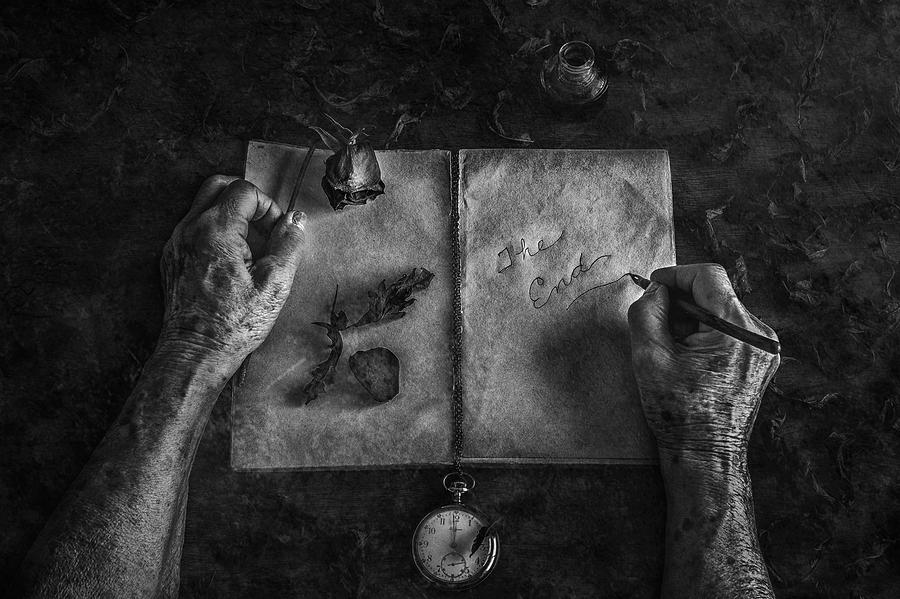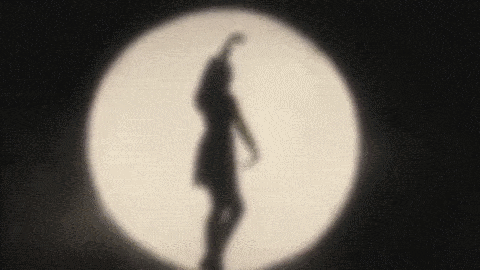
Torn asunder: Pluto Transits and the Vanishing Self
 In a book I once read about depersonalization—DP, as it’s often called—it’s not something I typically felt on a daily basis. Yet, during a Pluto square transit to my Sun in the late ’90s, I lived it. The soundtrack to that tumultuous era of my life was Natalie Imbruglia’s Torn. The song, much like Pluto itself, seemed to straddle two worlds: haunting and achingly emotive, yet inexplicably catchy—a melody you could sob along to without missing a beat. It is an anthem for those who feel both disjointed and exposed. A soul shredded by circumstances beyond one’s control, and yet somehow, still there, quietly processing the enormity of it all. The trauma that likely triggered this sense of depersonalization was the death of my father. That said, not every Pluto transit will feel this way for everyone. Depersonalization is a cruel little trick of the mind. It’s like someone hits “pause” on the self while the world keeps spinning. It’s almost as if your psyche, under the stress of grief, chooses to retreat, to observe rather than engage, a survival mechanism cloaked in detachment Losing a parent has a way of shifting the ground beneath our feet, making reality feel… distant. And depersonalization? It’s the mind’s way of saying, “This is too much. Let me step outside myself for a moment so I can survive.”
In a book I once read about depersonalization—DP, as it’s often called—it’s not something I typically felt on a daily basis. Yet, during a Pluto square transit to my Sun in the late ’90s, I lived it. The soundtrack to that tumultuous era of my life was Natalie Imbruglia’s Torn. The song, much like Pluto itself, seemed to straddle two worlds: haunting and achingly emotive, yet inexplicably catchy—a melody you could sob along to without missing a beat. It is an anthem for those who feel both disjointed and exposed. A soul shredded by circumstances beyond one’s control, and yet somehow, still there, quietly processing the enormity of it all. The trauma that likely triggered this sense of depersonalization was the death of my father. That said, not every Pluto transit will feel this way for everyone. Depersonalization is a cruel little trick of the mind. It’s like someone hits “pause” on the self while the world keeps spinning. It’s almost as if your psyche, under the stress of grief, chooses to retreat, to observe rather than engage, a survival mechanism cloaked in detachment Losing a parent has a way of shifting the ground beneath our feet, making reality feel… distant. And depersonalization? It’s the mind’s way of saying, “This is too much. Let me step outside myself for a moment so I can survive.”
Perhaps during the more dramatic and traumatic Pluto transits, you have also experienced this sense of depersonalization at the time. Under Pluto’s transit to the Moon, it could have been an emotional cataclysm. Losing a mother, feeling your safe haven obliterated, or even living in a perpetual state of feeling emotionally stripped bare. The Moon is all about comfort, home, and the sense of belonging. When Pluto sets its sights on it? It says, “Let’s strip away every sense of safety so you can find it within yourself instead.” What a cruel yet transformative irony. If you had Pluto transiting Mercury, this is where the mind goes to war. Endless loops of overthinking, perhaps triggered by verbal abuse, manipulative dynamics, or a job that feels like a living nightmare. Mercury is how we communicate, how we process the world, and Pluto turns it into a battlefield. Under such transits, your brain might decide to hit “mute” on reality as a survival tactic. If Pluto was transiting your Venus, romantic intensity has gone terrifying. Love becomes obsession, attraction turns to fear, and suddenly the idea of opening your heart feels like a vulnerability too great to bear. Stalkers, toxic relationships, or betrayals that dig under the skin of your self-worth. The Venus-Pluto transit is one of beauty and destruction—gorgeous to watch from afar, but harrowing to live through. If you had Pluto in transit to Mars, the rawness of physicality, sexuality, and survival instincts. When Mars—the warrior—is challenged by Pluto, we’re thrown into confrontations with our primal nature. Sexual trauma, physical aggression, or situations where your very autonomy feels threatened. Crisis mode becomes your default setting.
Pluto forces us into the underworld of the soul, where everything familiar dissolves, and what’s left is stark, foreign, and terrifying. The DP feeling is where reality feels distant, like you’re floating outside your own body—is the psyche’s desperate attempt to cope. Your mind temporarily disconnects from the unbearable, giving you a strange, unsettling space to process the unbearable weight of it all.
The World Feels Unreal
Pluto shines its relentless light into the darkest corners and says, “Look. You cannot ignore this any longer.” Of course, we don’t want to look. We want to run, to escape, to depersonalize. But depersonalization itself becomes a strange paradox. It’s your brain trying to protect you, to pull you away from the pain, but in doing so, it leaves you disconnected, adrift. The world feels unreal because, in that moment, your inner world has become the battleground. Pluto transits push us into the abyss, where nothing feels solid. DP becomes more likely the deeper the trauma. When Pluto transits carve so deeply into our soul’s landscape, the mind can’t help but go into crisis mode. It’s terrifying, but it’s also a sign of survival.
It’s the strange void where existence itself feels like a ghost. Reality is on mute, the world plays on without you, and everything you once trusted as solid becomes vapor. Your tether to the world cut so cleanly that you float in a limbo of crisis mode. And crisis mode, let’s be honest, is a brutal place to live. You’re standing at the edge of yourself and finding no ground beneath your feet. The sky feels fake, the walls feel like a painted set, and the people in your life? They’re there, but somehow not there. You can’t fully enter the moment because the moment feels like an imposter. It’s not just “I don’t feel okay”; it’s “I don’t feel like I exist in what should be okay.” It makes sense when you think about it. Depersonalization is the psyche’s emergency brake. When life tips over into unbearable, when the trauma cuts so deeply it threatens to flood your whole being, the mind pulls you back—way, way back—into this eerie, detached bubble. You’ve been forced to step outside of it. It’s survival, but survival at a terrible cost: the cost of belonging, of participating, of feeling at home in your own life.
Pluto transits, with their relentless digging, their raw exposure of our deepest wounds, are prime candidates for triggering this state. They demand everything from us—our identity, our control, our illusions—and they offer nothing in return except the promise of transformation. And yet, transformation is a long game. The in-between, the DP state, feels endless. A crisis with no resolution, a self with no anchor. You’re grieving in a place where the grief itself feels untouchable, a shadow on the wall of your psyche.
But here’s the cruel brilliance of DP, if you’ll forgive the irony: it’s proof that your mind is fighting for you, even if it doesn’t feel that way. It’s saying, “This is too much. Let me step back and hold space for you while you process this.” It’s a sign that the system is overwhelmed, but also that it’s resilient. It’s a temporary disconnection, though it rarely feels temporary when you’re in the thick of it.
Living in the Shadow Realm
Under a Pluto transit, the veil has been pulled off the shadow realm itself. This is no small shift, no fleeting unease—it’s an unraveling of the very threads that hold life together. The world has turned itself inside out and left you standing in the eerie silence of an alternate realm. A hellish, Hadean place that feels so alien it swallows the air from your lungs. The loss of everything you knew to be real… it’s the death of reality itself. This is the true terror of depersonalization—it’s an existential earthquake. Depression and anxiety are familiar companions to it, but DP has a unique cruelty. It’s not only the weight of sadness or the racing pulse of fear; it’s the absolute fracturing of the self. The terrifying realization that the world doesn’t feel like the world anymore, that you don’t feel like you anymore. What could be more destabilizing?
And the abyss—it beckons. It’s a real sensation. You’re teetering on the edge of some bottomless void, and one wrong move, one further step, could pull you into a place so dark and so far from reality that you might never come back. It’s the eerie feeling of this state—it traps you between two worlds. One is a nightmare of disconnection, where nothing feels real, and the other is the abyss, the black hole that promises escape but offers no return. It’s a descent into a place where the rules of reality don’t apply, where time and space distort, and where every comforting truth you once held is stripped away.
Pluto knows this terrain well. It’s the ruler of Hades, after all, the guide through these dark, inner landscapes. And like any journey into the underworld, it’s marked by a profound loss. Not only a loss of a loved one or a situation, but the loss of everything—your reality, your sense of self, your connection to the world. It’s a terrifying unmooring. This is no light statement. It’s a seismic shift, and it’s horrifying to feel as though the very structure of your existence is crumbling. How do you trust anything, how do you hold onto anything, when the very fabric of reality feels like it’s disintegrating in your hands? The mind considers escape, anything to flee the overwhelming terror of this new, hellish plane. When the world no longer feels like the world, how do you even live in it?
Pluto’s underworld isn’t a permanent exile, though it might feel eternal in the moment. When you’re in it, it feels like annihilation, where everything has been consumed. But Pluto is not a god of meaningless destruction. It’s the god of renewal through the dark, of rebirth after the descent. It drags you to the depths, but only so you can emerge with a deeper understanding, a greater strength, a new truth. The loss of your old reality is terrifying because it’s everything you knew—but it also opens the door to what could be. The descent into the underworld is not the end of the story. It’s just the darkest chapter before the next begins.
The Underworld
Here’s the brutal, isolating truth of a deep Pluto transit. When it grips you, it feels like you’ve been dragged beneath the surface of life itself, into some stark, unsparing real reality—one that feels agonizingly honest, painfully raw. The veil has been torn away, and you’re staring at the bare-boned machinery of existence. And it’s ugly. It’s barren and cold, so far removed from the glossy, carefree fantasy you see others prancing through. You watch them laughing, chatting, oblivious to the churning abyss just beneath their feet, and you think, “How can they not see it? How can they not feel it?”
Because in this state, you feel it—all of it. You feel the weight of every moment, the sharpness of every shadow, the depth of every silence. The ordinary world, the “upper world,” seems so utterly shallow, a hollow theater of distractions. You wonder, how do these people manage it? How do they go about their days with such ease when the truth—the real truth—feels so unbearably heavy? This is Pluto’s grip: it forces you into the depths. It’s totality. It consumes your perception entirely. Your sense of meaning, of joy, of even your own identity is shredded. It not only takes away your illusions; it obliterates everything you once clung to for comfort. Your friendships, your achievements, your daily routines—all the little bricks that made up your life—Pluto burns them to ash and leaves you staring at the void beneath. And everything feels pointless, irrelevant, and terrifyingly dark. It’s not just the worst day of your life—it’s the death of the life you knew.
Pluto rips the rug out from under you and demands that you confront the real—not the soft edges of life, but the jagged, existential truth of it. Pluto hands you the glasses no one else dares to wear, and through them, the upper world, the “normal” world, appears as a shallow facade. Everything people take comfort in—small talk, routines, dreams—feels absurd in the face of the depth you’re swimming through. But here’s the truth of this transit, the manipulative treachery of it: this dark, consuming, “real” reality is not the whole story either. Pluto’s job is to dismantle, to destroy illusions. But its purpose is not to leave you stuck in the ruins. This consuming darkness is only a chapter, not the final truth. In its way, Pluto is reshaping you, transforming you, pulling you apart so that something more more authentic can emerge. But transformation is not gentle, and in the middle of it, it’s easy to believe that the darkness is the only truth.
Pluto forces you to face the abyss of meaninglessness, to strip away every superficial layer, so that you can begin the slow, painful process of rebuilding your understanding of reality. But you don’t stay in the Hadean realm forever. You emerge with a new understanding of yourself and the world. Pluto transits make life seem irrelevant and empty, but it’s because they’re wiping the slate clean. The point is not to destroy you, though it feels like it. The point is to help you see what’s real—not the darkness, but the meaning you create for yourself after you’ve faced the worst and come through it. You’re in the underworld, no doubt about it. But even in the myth of Hades and Persephone, there is a return. There is a spring after the winter. Pluto does not let you stay in the darkness forever. And when you do return to the upper world, it won’t be the same, but neither will you. You’ll have seen deeper, you’ll know more, and you’ll carry a truth that’s yours and yours alone. That’s Pluto’s gift, though it never feels like one at the time.
The Shutdown
Depersonalization under trauma: it’s both a shield and a prison. It’s your mind’s desperate attempt to protect you, to pull you back from the unmanageable flood of emotions and let you keep moving, keep breathing, even when everything inside you is screaming to stop. It’s survival, but it comes at the cost of connection. A numbness takes hold, a cold detachment, as if the very thread that binds you to your own humanity has been severed.
Under a Pluto transit—the seismic, soul-altering periods—this defense mechanism becomes almost automatic. Trauma presses too hard, too fast, and the psyche throws up its walls. Suddenly, you’re not in the world anymore; you’re beside it, watching yourself go through the motions, a shadow of your former self. It’s eerie, this sense of calm that coats everything, but it’s not peace—it’s distance. Your body becomes a puppet, your mind a spectator. Conversations, routines, obligations—they all unfold in front of you like scenes in a play, and you’re the actor who doesn’t quite feel the lines anymore.
This shutdown, this stepping away from yourself, is your mind saying, “You cannot carry this all right now, so let me lighten the load.” The blunted feelings, the unreal sense of being—you’re not broken, you’re in survival mode. You’re standing at the edge of the storm, observing, because stepping into it fully would be too much to bear. Pluto brings us face-to-face with the unbearable, forces us to reckon with truths we would rather never meet.
The autopilot state, this strange sense of calm, is part of the same mechanism. On the outside, you’re walking, talking, functioning—no one may even know what’s unraveling within you. You seem composed, even as your inner self has retreated to the sidelines. It’s the ultimate act of duality, really: the part of you that interacts with the world keeps going, while the part of you that feels the world has stepped away to hide in safety. And yet, this distance—it’s not peace, it’s survival, but it’s also hollow.
Pluto transits magnify this state because they dredge up emotions that are too overwhelming to process in real-time. The loss of control, the grief, the terror, the shattering of all that felt secure—Pluto doesn’t let you bypass these feelings, but it understands that sometimes, to survive, you must pause them. It’s the psyche’s way of saying, “Not yet. Not all at once.” So, instead, you feel torn from the world, operating from the sidelines, half-in and half-out of your own life.
But even this state, as hollow as it feels, serves a purpose. It gives you the space to exist while you process what’s too much to bear. It’s not permanent, though it may feel endless. At some point, the emotions that were too big to hold will begin to soften. The detachment will begin to fade. You’ll start to step back into yourself, little by little, until you can engage with life again—not from a distance, but fully. But that distance is not your new reality. It’s just a phase—a liminal space—before the next chapter begins. And when you return, you return changed, but also more whole, more grounded, more yourself.
You Question Everything
The depersonalized self is the ghost of yourself walking through the ruins of what once felt whole and real. The thread connecting you to existence has frayed, and now you’re hovering somewhere above it all, watching from an uncomfortable distance. You’re there, but you’re not there. Life is “happening over there, and you’re left in this hollowed-out state, disconnected and numb, like a spectator to your own existence. It’s haunting.
It’s a trance-like state—the world has lost its edges, and everything becomes flat and far away. The people around you move and talk as though nothing’s wrong, but to you, it’s like watching a film you’re not a part of. You see the scenes, but they don’t touch you. And the worst part is that you don’t touch you either. Looking at your reflection, poking at your face, trying to feel real—it’s a surreal, almost absurd ritual. Like trying to shake yourself awake from a bad dream, except the dream is your own life.
Under Pluto’s extreme traumatic transits, this disconnection is amplified a thousandfold. Pluto drags you into the depths of existence, strips away every comforting illusion, and leaves you in the starkness of the underworld. And in this place, everything feels unreal. You look at your surroundings, at your own actions, and think, “How is this my life? How is any of this relevant? What does it all mean?” The answers don’t come, though. Instead, there’s a gnawing emptiness, the terrifying thought that maybe it’s all meaningless—maybe I’m meaningless. The thought creeps in, saying, “What’s the point? Maybe I’m nothing. Maybe this existence is nothing.”
And the new reality Pluto ushers in? It’s hellish, no doubt about it. It’s hostile, and you want nothing more than to escape it. You’ve been torn from the life you knew and thrust into a parallel dimension where nothing makes sense anymore. You hate it. You hate being there, being in this new version of yourself that feels incomplete, unreal, severed. You hate existing in this state. And yet, there’s no obvious way out. You’re stuck in this surreal limbo, desperate to reconnect with something—anything—that feels familiar and solid.
This is the harshest truth of a Pluto trauma transit: it makes you question everything. Your existence, your identity, the reality of the world itself. It’s an existential crisis. And the disconnection you feel, the out-of-body sensation, is your mind’s way of trying to protect you from the unbearable weight of it all. It pulls you back, creates a buffer, so you don’t have to feel the full force of the trauma all at once. But in doing so, it also leaves you stranded, detached, and wondering if you’ll ever feel “real” again. This state, as surreal and terrifying as it is, will pass. It doesn’t feel that way now, I know. When you’re in the thick of it, it feels endless, like you’ll always be floating in this shadow-realm, disconnected and hollow. But Pluto doesn’t leave you here forever. It forces you through the underworld, but only so you can come out the other side transformed. The disconnection, the numbness, the trance—they’re temporary, a protective mechanism. They’re not the end of you.
In time, the world will start to come back into focus. The flatness will start to take on depth again. You’ll see yourself in the mirror and recognize yourself. It doesn’t happen all at once, and it’s not an easy process, but it does happen. You’re not nothing. You’re not meaningless. You’re in a state of transformation, and though it feels unbearable now, it’s leading you somewhere new.
Keep poking at your face, keep questioning, keep moving through the motions. It’s not meaningless—it’s you surviving the unspeakable, one surreal day at a time.
The “As Ifs”
Pluto seems to bring those haunting “as ifs.” They sneak in from the void, wrapping around your perception until reality itself feels different. It’s as if you’re an inanimate object, stripped of the life force that once flowed freely. As if you’re no longer human, but something other, drifting aimlessly through an infinite, indifferent abyss. These “as ifs” are not only thoughts—they’re entire worlds you inhabit, realms of disconnection where the familiar becomes grotesquely foreign.
Looking in the mirror becomes an existential confrontation. You see a face, your face, but it doesn’t feel like you. It’s as if you’re gazing at a stranger, some humanoid vessel, but the essence of your self—whatever that even means—has slipped away. You poke, you prod, you stare, trying to summon recognition, connection, something that anchors you back to what it means to be alive, to be human. But it doesn’t come. Instead, there’s this decaying sense of being—like you’re no longer part of the living world, but some discarded fragment floating in an eternal abyss.
And this bottomless feeling of being nothing—this is where Pluto exists. Pluto doesn’t deal in soft truths or comforting illusions. It plunges you into the depths. For those with significant natal Pluto aspects, this theme of existential intensity might weave through their lives in subtle or overt ways. But during extreme moments—be it through a Pluto transit or some other trigger—this psychological chasm can open wide, swallowing any sense of stability or self. And for some, it can take them to this surreal, dissociated place where existence itself feels like a question mark.
It’s worth noting that Pluto, as the ruler of death, transformation, and rebirth, is not content with surface-level living. For those deeply influenced by its energy, there’s often an innate sensitivity to the undercurrents of existence—the unseen forces, the hidden truths, the impermanence of it all. This sensitivity can be a gift, but when trauma or extreme emotional experiences arise, it can also feel like a curse. Pluto forces you to confront the depths of the human experience, and sometimes, the result is this eerie, disconnected feeling: as if you’ve slipped into another realm entirely.
The “as ifs” are psychological survival mechanisms, but they’re also reflections of how Pluto operates. It tears you away from the mundane and thrusts you into a realm where you’re forced to confront not only your fears but your very essence. What does it mean to be human? To be alive? To exist? These questions are Pluto’s territory, and in its most extreme forms, it pushes you to explore them in ways that feel unbearable.
Pluto’s destruction feels like annihilation. It strips you down to the bone. The life force you once felt—gone. The sense of being human—gone. The connection to the world—gone. But this isn’t the end of the story. It’s a phase, a process, a part of Pluto’s relentless journey toward transformation. When the process is complete, when you emerge from the darkness, you may find a deeper connection to life, a richer sense of self, and a profound understanding of what it means to be human. But for now, in this state, the best you can do is ride the wave. Allow yourself to feel the “as ifs” without fully believing them. You’re not inanimate, you’re not decaying, you’re not nothing—you’re in the depths of transformation, and though it feels endless now, Pluto’s journey always ends with renewal. You’re still here, even if you can’t quite feel it yet. And that is enough.
Pluto Trauma
Pluto trauma has this way of pulling you down into the depths of yourself, where everything familiar is stripped away. Your life, your identity, your sense of reality—it all gets dismantled. And that’s the thing with Pluto transits: they bring death of the old, forcing you to rebuild from scratch. And while this process is happening, while you’re standing in the rubble of your former life, your mind does what it must to protect you. Depersonalization becomes the bridge between the unbearable and the eventual renewal.
It’s important, I think, to normalize this reaction. If you’re reflecting on a past Pluto transit or living through one now, understanding that this dissociative state is a natural response can bring some comfort. Depersonalization is your mind’s way of saying, “I can’t fully engage with this yet, so let me create some space to survive.” As Pluto’s lessons unfold and you begin to adapt to the new reality it’s created, the detachment starts to fade. Slowly, you reacquaint yourself with life. It’s not the same life you knew before—Pluto doesn’t allow for that—but it’s a new version, one forged from the ashes of what was lost. It’s a life that might carry scars, but also strength, depth, and wisdom.
You need patience. While you’re in the throes of a Pluto transit—or looking back on one—remember that this phase, as unsettling as it feels, isn’t permanent. It’s a necessary part of the process. The mind shuts down, detaches, steps away, not to abandon you but to help you. To give you the space to survive what seems unthinkable. And then, when the time is right, it slowly reopens, allowing you to step back into the world, into yourself. Pluto doesn’t leave you the same—it can’t. But it does leave you with something new, something real, something powerful. Depersonalization, as disorienting as it is, is simply a part of this journey. It’s not forever. You will reconnect. You will reacquaint yourself with life again. And when you do, you’ll find that you’re living in a way that’s deeper and more real than before.



















 The Scorpio Teenager
The Scorpio Teenager
 Reflections on a Past Venus-Pluto Synastry Aspect
Reflections on a Past Venus-Pluto Synastry Aspect
 Venus-Pluto Synastry: A Love So Powerful That It Might Just Kill Them
Venus-Pluto Synastry: A Love So Powerful That It Might Just Kill Them
 Venus Trine Pluto: Dark Desires
Venus Trine Pluto: Dark Desires
 Mars Conjunct Pluto Synastry
Mars Conjunct Pluto Synastry
 Grand Fire Trine: From Adventurous Extroverts to Visionary Introverts
Grand Fire Trine: From Adventurous Extroverts to Visionary Introverts
 Mars in Aquarius: Sex drive
Mars in Aquarius: Sex drive
 Moon Conjunct Pluto Synastry
Moon Conjunct Pluto Synastry
 Moon in the 8th House: At Home in the Underworld
Moon in the 8th House: At Home in the Underworld
 Venus in the 5th House
Venus in the 5th House
 Uranus Transits the 6th House
Uranus Transits the 6th House
 Mercury Conjunct Saturn in Synastry: Are You Bored by Your Partner?
Mercury Conjunct Saturn in Synastry: Are You Bored by Your Partner?
 Sun Square Pluto Natal Aspect: I Am Titanium
Sun Square Pluto Natal Aspect: I Am Titanium
 Mars Conjunct Pluto Natal Aspect: From Ember to Inferno
Mars Conjunct Pluto Natal Aspect: From Ember to Inferno
 Moon Trine Jupiter Natal Aspect: Your Happy Place
Moon Trine Jupiter Natal Aspect: Your Happy Place
 Mercury Conjunct Pluto Synastry
Mercury Conjunct Pluto Synastry
 Moon-Neptune Synastry: We Can Isolate Ourselves From the Rest of the World
Moon-Neptune Synastry: We Can Isolate Ourselves From the Rest of the World
 Uranus Transits 8th the House: Rebirth from Chaos
Uranus Transits 8th the House: Rebirth from Chaos
 Moon Trine Neptune
Moon Trine Neptune
 The Power of Elements in Astrology: Exploring What’s Missing
The Power of Elements in Astrology: Exploring What’s Missing